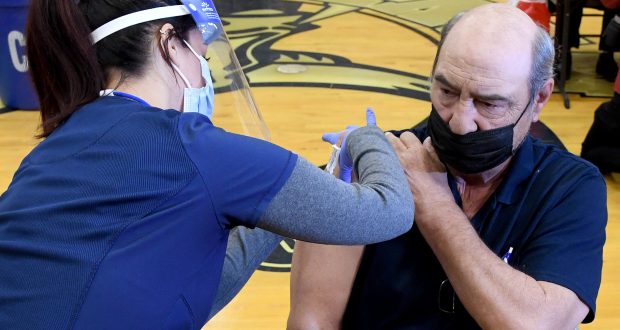Nurses are set to play a key role in the COVID-19 vaccine rollout that will see 50 million doses available across hospital hubs and up to 2,000 GP clinics nationwide.
Nurses and other frontline healthcare workers will be among the first to be vaccinated in Australia as part of the COVID-19 rollout. They will receive the Pfizer-BioNTech jab, the first available in the nation, and will be intimately part of the process as phase 1a will be only distributed from hospitals because of the ultra-low temperature storage required for this vaccine.
"Now, once again, our nurses are stepping up," chief midwifery and nursing officer Professor Alison McMillan said.
In a statement, McMillan lauded the contribution of nurses during the pandemic and reiterated how important they will be going forward.
"They’ll be among the first Australians to get vaccinated. People who need protection the most will get the Pfizer-BioNTech jab first – our aged care and disability care residents and workers, healthcare workers, and quarantine and border workers. The Government’s priority is to protect our most vulnerable Australians, and the frontline heroes who are protecting all of us. Our nurses are integral to this group.
"But not only are they among the first ones to get vaccinated. They are then in turn going to play a key role in vaccinating everyone else.
"The Government is preparing for the COVID-19 vaccine rollout by securing an additional vaccine workforce and working to deliver essential training to everyone who will administer the vaccinations.
"A ready and capable immunisation workforce will be critical to the success of the vaccination rollout. And our nurses are certainly both ready and capable. They will be administering the vaccines efficiently, effectively and safely, particularly to our priority groups, including in aged care."
With the news that over 1000 more GP clinics have signed up to distribute the vaccine than expected – 2000 have successfully signed on – nurses are calling on the government to use them to administer vaccines, freeing up doctors to see patients in need.
Australian Primary Health Care Nurses Association president Karen Booth said: "[The government’s] paying the GPs to give the vaccine, so the patient will have to see a doctor as part of that – that may slow things down,” reports the Nine newspapers.
“We need to look at much more efficient ways to do it.”
“Nurse clinics that are run either within general practices or public health spaces are the most efficient way to go, they’re highly trained and used to giving vaccines and monitoring side effects,” she said.
Phase 1a will see quarantine and border workers, frontline healthcare workers, aged care and disability care staff and aged care and disability care residents vaccinated, with up to 1.4 million doses available.
Phase 1b will be open to over 70s, other healthcare workers, Aboriginal and Torres Strait Islander people over 55, younger adults with an underlying medical condition, including those with a disability, and critical and high risk workers including defence, police, fire, emergency services and meat processing. Up to 14.8 million does will be available.
Phase 2a will see adults over 50 vaccinated as well as other high risk workers and Aboriginal and Torres Strait Islander people aged 18-54, with 15.8 million doses available, before phase 2b opens up to the rest of the population.
Altogether, Australia has access to 50 million doses of the vaccine with both the Pfizer and AstraZeneca vaccines requiring two doses for each person.
"It often surprises people that nurses are the largest group in our health workforce. In 2019, there were more than 330,000 registered nurses in Australia," said McMillan.
"So they are a most valuable resource – one which the Government strongly supports and relies upon – and one which the Australian community can also rely on as the vaccine rollout progresses this year."
Email [email protected]
 Aged Care Insite Australia's number one aged care news source
Aged Care Insite Australia's number one aged care news source

